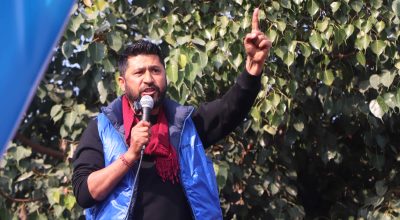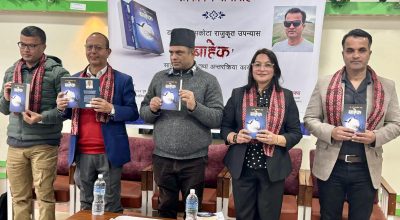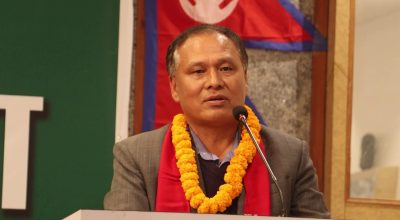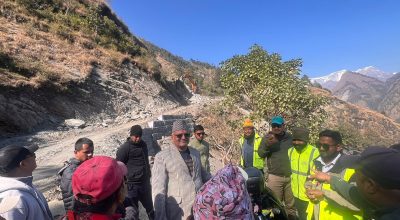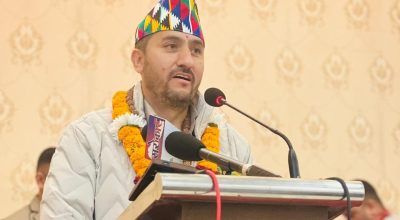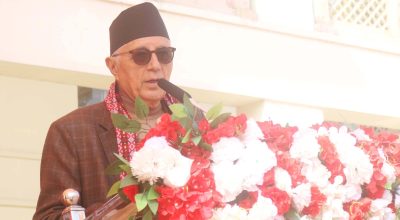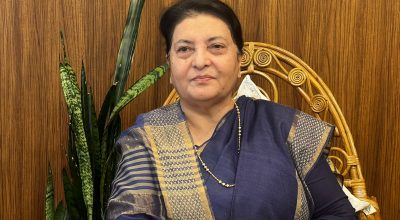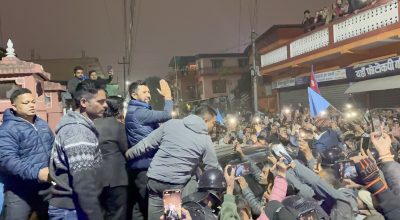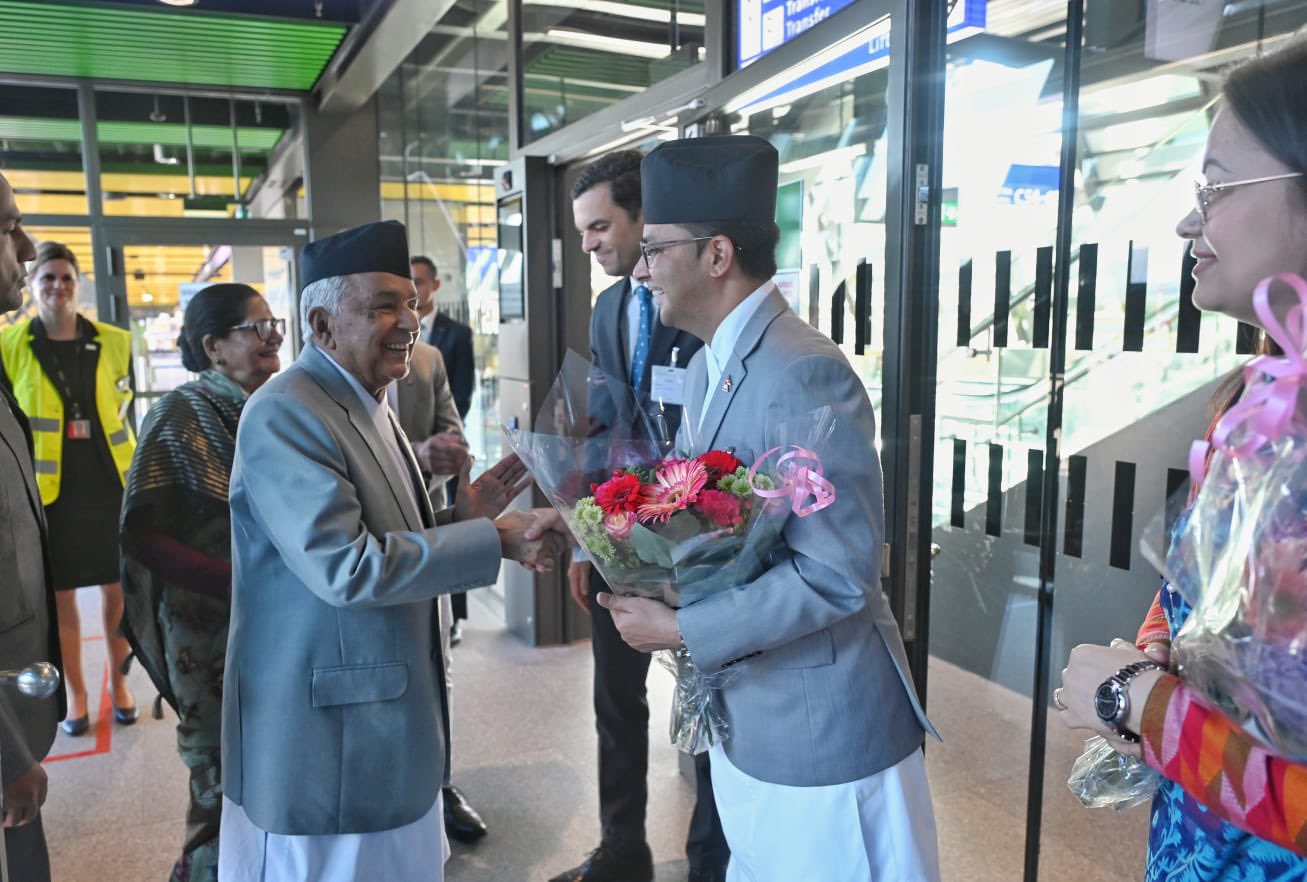
Kathmandu, June 14: President Ramchandra Paudel, who is currently in Geneva, Switzerland, will visit Germany on June 15.
President Paudel is visiting Germany at the invitation of his German counterpart Frank Walter Steinmeier. He is scheduled to hold official talks with the German President on June 17, shared Spokesperson at the Ministry of Foreign Affairs, Amrit Bahadur Rai.
Nepal and Germany established diplomatic relations on April 4, 1958. Since then, the relation between the two countries has been growing on the basis of friendship, mutual understanding and cooperation.
Both countries have established residential embassies in each other capital cities. While Nepal established its embassy in Berlin on 5 July, 1965, Germany opened its embassy in Kathmandu in 1963.
The year 2018 marked 60th anniversary of establishment of diplomatic ties between the two countries which was marked by various celebratory programmes in both countries.
Similarly, exchanges of visits by dignitaries of both countries have at various levels have further contributed to strengthening close and cordial relations between the two countries.
Erstwhile German President Heinrich Lubke visited Nepal in 1967 and the then President Prof Roman Herzog in 1996, according to the Ministry of Foreign Affairs.
Likewise, late King Birendra and late Queen Aishwarya paid state visit to Germany in October 1986. The erstwhile Head of the Government Girija Prasad Koirala made a visit to Germany in February, 1995 and in September, 2000. The then Prime Minister Man Mohan Adhikari embarked on an official visit to Germany in April, 1995.
Then Deputy Prime Minister and Minister for Foreign Affairs Madhav Kumar Nepal visited Germany in February, 1995 and then Minister for Foreign Affairs Upendra Yadav travelled to Germany in March, 2009.
Minister for Commerce and Supplies Lekhraj Bhatta in 2012 visited Germany in connection with the Nepal Investment Year 2012.
Germany, which consists of 16 States (Lander) is an important country in the central part of Europe.
Nepal mainly imports optical instruments, photography-related equipment, surgical appliances, medicine products and vehicles. The is immense possibility of exporting carpet, honey, ready-made garments, pashmina, handicraft items, silver ornaments, wooden and bamboo-made articles, herbs, cardamom and tea from Nepal. Germany was a major export destination for Nepal-made carpets in the past, thanks to the direct air connectivity between the two countries.
Likewise, there is big possibility of bringing modern technology related to renewable energy into Nepal from Germany as part of technology transfer. Both the countries have enormous tourism attraction. As per a data, 36,641 Germans visited Nepal in 2019. Germans are found especially interested in climbing mountains in Nepal. Nepal could be promoted as a hub for German visitors as the country has high per capita income as well as government policy encouraging its citizens on foreign travel.
Germany has been providing assistance to Nepal in the agriculture, urban development, waste management, promotion of small and cottage enterprises, poverty alleviation, physical infrastructure development, hydropower and transmission line construction, renewable energy promotion, education, health, environment conservation sectors as well as humanitarian support. The German government has, through the AFW Bank, invested 200 million Euros in the 70-megawatts capacity Mid Marsyangdi Hydropower Project.
After the 2015 Gorkha Earthquake, Germany provided 4.5 million Euro through the formal channel and 30 million Euro for reconstruction. A large amount of assistance was also received from Germany through the non-governmental and private sectors at that time.
According to government officials, there is potentiality of bringing in German investment in the agriculture, tourism, renewable energy, physical infrastructure development, food processing, information technology, education and transportation sectors. It is estimated that Germany will also be an attractive foreign employment destination for skilled and professional human resources.
Germany is one of the major donors for Nepal’s development efforts. Germany began its development cooperation to Nepal in 1961 with the technical assistance for the establishment of a Technical Training Institute at Thapathali. Germany also constructed Middle Marsyangdi Hydroelectric Project.
The latest round of Nepal-German Negotiations on Bilateral Development Cooperation was held on 19-20 September 2018 in Berlin. Energy, transmission lines and infrastructure development have been the major areas of German cooperation. Recently, Germany has decided to provide Technical Cooperation to support the Government’s initiatives to fight COVID-19.
Germany is Nepal’s major export trading country especially for carpets and textile products. Nepal’s main imports from Germany are machinery and industrial products. An investment protection agreement has been in place since October 1986. Founded in 1990, the Nepal-German Chamber of Commerce and Industry (NGCCI) in Kathmandu promote bilateral trade relations. Besides carpet, export to Germany from Nepal include handicraft, silver jewelries, garments, leather, wooden and bamboo goods, lentils, tea, essential oils from herb and aromatic plants. Nepal imports mainly industrial raw materials, chemicals, machinery equipment and parts, electric and electronic goods, vehicles etc. from Germany.
More than 15 thousand Nepalis are living in Germany either as students or working in various jobs. They have contributed to deepening Nepal-Germany ties at the people’s level.
The President is accompanied by his spouse Sabita Paudel, his Foreign Affairs Expert Dr Suresh Chandra Chalise, the Secretary of the Office of the President, the Foreign Affairs Secretary and Nepal’s Ambassador to Germany in the visit. President Paudel is scheduled to return to Kathmandu on June 19.





